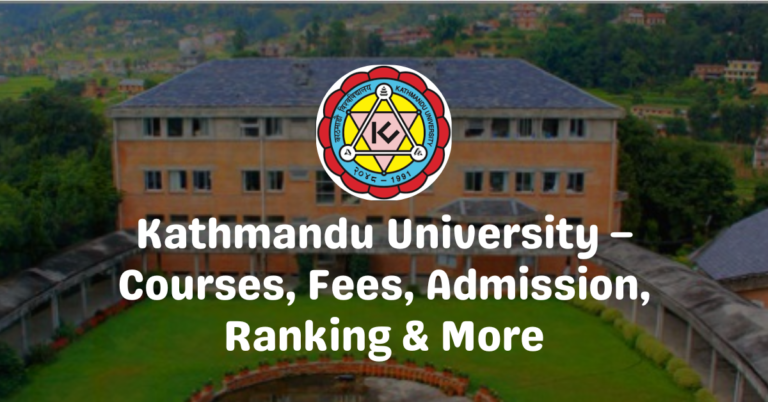Bachelor of Electronics Communication and Information Engineering


The Bachelor of Electronics, Communication and Information Engineering (BECIE) is one of the most sought-after undergraduate engineering programs in Nepal. With the fast-paced development in electronics and digital communication technologies, this course prepares students for the ever-evolving tech industry. From designing embedded systems to creating wireless communication networks and working with IoT devices, BECIE encompasses a broad and dynamic field. Nepal’s focus on digital infrastructure and tech startups has created high demand for skilled electronics and communication engineers, and BECIE is the bridge to that future.
This program is especially appealing to students who are tech-savvy, love problem-solving, and are curious about how things work—from microchips to mobile networks and software integration. Not only is the field versatile, but it also offers robust opportunities both within Nepal and abroad. Whether you’re planning a tech-oriented career in Kathmandu’s growing IT hubs or envisioning opportunities in global companies, BECIE lays the groundwork.
Let’s break down everything you need to know about this degree—eligibility, colleges, curriculum, fee structure, career scope, and beyond.
Introduction to BECIE
What is BECIE?
Bachelor of Electronics, Communication and Information Engineering (BECIE) is an interdisciplinary program that blends electrical engineering, computer science, and communication technologies. It’s a four-year, eight-semester undergraduate degree offered under Tribhuvan University (TU), Purbanchal University (PU), Pokhara University (PoU), and other affiliated institutions across Nepal.
In essence, the course focuses on:
- Electronics systems design and maintenance
- Signal processing and telecommunication
- Embedded systems and microprocessors
- Networking and digital communication
- Software and data systems related to communication and electronics
BECIE graduates are prepared to work in telecommunications, IT companies, electronic design, automation, defense systems, and many more domains. The curriculum is designed to give a holistic knowledge of hardware and software that enables modern digital communications.
In a nutshell, it’s a futuristic course tailored for the digital era—and in a country like Nepal that’s rapidly digitizing, the relevance of this course is growing exponentially.
Historical Context and Evolution
The journey of electronics and communication engineering education began modestly in the late 1990s. Initially, students had limited options and had to travel abroad, mostly to India, for engineering education. However, with the establishment of Pulchowk Campus (under Tribhuvan University) and other private institutions, Nepal slowly started to develop a robust infrastructure for engineering studies.
The BECIE program is relatively newer compared to traditional streams like Civil or Mechanical Engineering, but it quickly gained popularity due to the tech boom and mobile revolution. With the expansion of internet services, digital banking, and mobile apps in Nepal, the demand for engineers with knowledge of both hardware and software rose significantly. In response, many universities updated their curriculum to include topics like IoT, Artificial Intelligence, Data Communication, and Cloud Computing—ensuring the course remains relevant and competitive globally.
Eligibility and Admission Requirements
Minimum Academic Qualifications
To enroll in a BECIE program, students must meet the following criteria:
- Completion of 10+2 Science (with Physics, Chemistry, and Mathematics) or equivalent (A-levels, CBSE, etc.)
- Minimum of a ‘C’ grade in each subject or second division in aggregate
In some universities, like Tribhuvan University, students from diploma backgrounds (CTEVT in related subjects) are also eligible for lateral entry into the second year under certain conditions.
Moreover, the applicant must be academically strong in Mathematics and Physics, as these form the foundation of electronics and communication studies.
Entrance Exams for BECIE
Admission to BECIE programs in Nepal is highly competitive. All major universities conduct their own entrance examinations. Here’s a brief overview:
- Tribhuvan University (IOE Entrance Exam):
- Conducted by the Institute of Engineering (IOE), Pulchowk Campus
- Online CBT (Computer-Based Test)
- Includes Mathematics, Physics, Chemistry, and English
- One of the toughest exams in Nepal
- Purbanchal and Pokhara University:
- University-specific entrance tests
- Generally easier than IOE, but still competitive
- Private Colleges:
- May accept direct admission based on +2 marks or have their internal assessment
Students are advised to begin preparing for entrance exams immediately after their grade 12 board exams. Coaching centers for IOE entrance are widely popular and available in major cities like Kathmandu, Pokhara, and Biratnagar.
Top Colleges Offering BECIE
Government Colleges
- Pulchowk Campus (Tribhuvan University)
- Best engineering college in Nepal
- Highly competitive admission
- Excellent faculty and research facilities
- Thapathali Campus
- Known for practical, hands-on engineering training
- Offers strong foundation in electronics and communication
- Paschimanchal Campus (Pokhara)
- Part of IOE network
- Strong regional hub for engineering education
- Purwanchal Campus (Dharan)
- Excellent reputation in eastern Nepal
- Offers solid academic infrastructure
Private Institutions
- Kathmandu Engineering College (KEC)
- Advanced College of Engineering and Management
- Nepal Engineering College
- Kantipur Engineering College
Private colleges offer quality education with state-of-the-art labs and industry collaborations, though tuition fees tend to be higher.
Comparison of Colleges: Fee, Facilities, Location
| College Name | Type | Approx. Fee (NPR) | Location | Known For |
|---|---|---|---|---|
| Pulchowk Campus | Government | 2–3 lakhs | Lalitpur | Best academics, low fee |
| Kathmandu Engineering College | Private | 8–10 lakhs | Kalimati | Practical training, private sector |
| Kantipur Engineering College | Private | 7–9 lakhs | Dhapakhel | Good labs, active student clubs |
| Thapathali Campus | Government | 2–3 lakhs | Kathmandu | Strong mechanical and ECE courses |
| Nepal Engineering College | Private | 6–8 lakhs | Changunarayan | Research focus and rural outreach |
Curriculum and Course Structure
Year-wise Breakdown
The BECIE program in Nepal is divided into 8 semesters across 4 years. Each semester comprises 5–7 subjects, including theory and practicals. Here’s a simplified breakdown:
- First Year: Basics of Electrical Engineering, Physics, Chemistry, Calculus, C Programming
- Second Year: Circuit Theory, Analog Devices, Data Structures, Probability, Digital Logic
- Third Year: Microprocessors, Communication Systems, Signal Processing, Control Systems
- Fourth Year: Antenna and Wave Propagation, Wireless Networks, Project Work, Industrial Internship
Core Subjects and Electives
Core Subjects Include:
- Analog & Digital Electronics
- Communication Systems
- Microprocessors & Microcontrollers
- Data Communication
- Control Systems
- Embedded Systems
- Electromagnetic Field Theory
Electives May Include:
- IoT (Internet of Things)
- Artificial Intelligence
- Machine Learning
- VLSI Design
- Satellite Communication
- Robotics
Industrial Training and Projects
In the final semester, students must complete an industrial internship (typically 6 weeks) and a final year project. This helps bridge the gap between academic knowledge and real-world application.
Projects often include:
- Designing a line-following robot
- Home automation systems
- Wireless sensor networks
- Traffic light control using microcontrollers
This experience makes students job-ready and boosts their resume.
Fee Structure and Scholarships
Tuition Fees in Government vs Private Colleges
- Government Colleges: Offer subsidized education. The total cost for four years ranges between NPR 2 to 3 lakhs. Pulchowk Campus, for instance, offers one of the most affordable yet prestigious BECIE degrees.
- Private Colleges: Range from NPR 6 to 12 lakhs depending on facilities, faculty, and reputation. However, the quality of education is competitive with government colleges in many cases.
Scholarships and Financial Aid Options
Most universities and private colleges offer scholarships based on:
- Entrance exam performance (Merit-based)
- Need-based or socio-economic background
- Reserved quotas (Dalit, Janajati, Female, Remote Area, etc.)
Some popular scholarship schemes include:
- IOE Full Scholarship for top 10 students
- Pokhara University scholarship programs
- CTEVT Board Scholarships (for diploma holders)
- Mahabir Pun Innovation Fund for project development
Scope and Career Opportunities in Nepal and Abroad
Job Market in Nepal for BECIE Graduates
The job market for BECIE graduates in Nepal is growing, thanks to the rapid digitization of services, telecommunication expansion, and the boom in information technology. Here are some of the key employment sectors:
- Telecommunication Companies: NTC, Ncell, Smart Telecom, and other telecom operators frequently hire BECIE graduates for roles like network engineers, communication system designers, and RF planners.
- IT and Software Companies: With foundational knowledge in both hardware and programming, BECIE grads are eligible for software development, system administration, and IT support jobs.
- Electronics Manufacturing and Servicing: Though small in number, firms like Him Electronics, Vatsal Impex, and CG Digital hire for R&D and hardware design roles.
- Government Services: With PSC exams, engineers can enter government roles in Ministries of Communication, Technology, or Urban Development.
- Startups and Innovation Hubs: Innovation labs, especially in Kathmandu and Pokhara, have opened opportunities in product design, IoT systems, automation, and AI development.
On top of that, entrepreneurship is another rising trend among graduates. With skills in embedded systems and communication, many BECIE students launch tech startups or freelance in fields like robotics, device prototyping, and app-integrated electronics.
International Career Prospects
The curriculum and competencies of the BECIE program align well with global standards. Many graduates pursue international careers after further study or certifications. Popular destinations include:
- USA and Canada: Master’s programs in Electrical or Computer Engineering are common choices.
- Europe: Erasmus+ programs provide scholarships to Nepalese students, especially in IoT and AI-related fields.
- Gulf Countries: Engineers are recruited for large infrastructure and telecom projects.
- Japan and Korea: Increasing demand for engineers with embedded systems and automation experience.
Jobs abroad often include roles like:
- Embedded Systems Engineer
- Telecom System Engineer
- Software and Firmware Developer
- Electronics Design Engineer
- Network Architect
With the right certifications (like CCNA, Cisco, AWS, or PMP), graduates can boost their profile in the global job market.
Higher Studies and Certifications
Postgraduate Options
A BECIE graduate has multiple paths for advanced education:
- MSc/M.Eng in Electronics and Communication Engineering
- MS in Computer Science or Embedded Systems
- MBA in Technology Management
Nepalese universities like IOE and KU offer master’s degrees, and many students opt to go abroad for world-class research facilities and broader exposure.
Popular specializations include:
- Digital Signal Processing
- Wireless Communication
- Microelectronics
- Robotics and Automation
- Cybersecurity
Professional Certifications
To remain competitive, certifications are often necessary. Here are some that add real value:
- Cisco Certified Network Associate (CCNA)
- CompTIA Network+/Security+
- Certified Embedded Systems Engineer
- Amazon AWS Cloud Certification
- MATLAB or LabVIEW Certification for system modeling
These certifications not only enhance technical skills but also significantly improve hiring potential in international companies.
Challenges Faced by BECIE Students
Infrastructure and Lab Limitations
One of the biggest challenges is access to well-equipped labs. While top colleges like Pulchowk have state-of-the-art infrastructure, many private institutions lack advanced equipment for subjects like VLSI design, microwave engineering, or robotics. This creates a gap between theoretical and practical knowledge.
Limited Industry Linkage
Except for a few partnerships, the majority of colleges have weak industry linkage. This limits internship opportunities and makes the transition to the workforce harder. Students often rely on self-learning or online courses to bridge the skill gap.
Outdated Curriculum in Some Institutions
Despite efforts to modernize, some universities still follow outdated syllabuses. Technologies like IoT, AI, blockchain, and modern embedded systems are not fully integrated into every program. That said, many colleges are now reforming their syllabus to align with global tech trends.
Comparison with Other Engineering Streams
BECIE vs Computer Engineering
| Criteria | BECIE | Computer Engineering |
|---|---|---|
| Focus | Hardware + Communication + Software | Software + Programming + Systems |
| Job Roles | Network Engineer, Embedded Developer | Software Engineer, System Architect |
| Core Courses | Electronics, Signals, Communication | Algorithms, Programming, OS, Databases |
| Field Application | Telecom, IoT, Embedded Systems | Web/App Development, Cloud, AI |
BECIE vs Electrical Engineering
| Criteria | BECIE | Electrical Engineering |
|---|---|---|
| Focus | Electronics + Communication | Power Systems + Heavy Electronics |
| Scope | Telecom, IoT, Embedded Devices | Hydropower, Grid Systems, Renewable Energy |
| Technical Tools | Microcontrollers, RF Systems | Transformers, SCADA, Circuit Breakers |
Both streams have their value, but BECIE offers a more future-oriented, software-integrated approach—ideal for the digital transformation era.
Real-Life Success Stories of BECIE Graduates
Let’s look at how this degree has worked out for actual students:
- Srijana Sharma (Pulchowk Campus graduate): Now working at Huawei Technologies Nepal as a Communication System Analyst. She credits her final year project on 5G network simulation as the gateway to her current role.
- Aayush Subedi (KEC graduate): Built a smart home automation system as his thesis project, now co-founder of a startup focused on IoT home devices based in Lalitpur.
- Kiran Paudel (Paschimanchal Campus): Secured a scholarship to study MSc in Wireless Communications in Germany. Currently working at Ericsson as a Research Associate.
Their stories show that while the road can be challenging, hard work combined with the right education opens up impressive opportunities.
Government Policies and Future Prospects
Government Initiatives
The Nepalese government is increasingly focusing on digitization and smart infrastructure:
- Digital Nepal Framework: Offers huge potential for electronics and communication engineers.
- Smart Cities and E-Governance Projects: Require skilled manpower in networking, electronics, and systems integration.
- Subsidized Loans for Startups: Engineers planning to start tech-based companies can access government funding.
Opportunities in the Next 5–10 Years
With 5G rolling out soon, increasing reliance on smart systems, and the growth of renewable energy integrated with IoT devices, BECIE engineers are going to be in high demand. Fields like autonomous systems, AI hardware, and satellite communication are opening new doors—both locally and globally.
Conclusion
The Bachelor of Electronics, Communication and Information Engineering (BECIE) is more than just an academic course—it’s a gateway to the future of technology. With a solid foundation in electronics, software, and communication systems, this degree equips students with the tools to thrive in various industries—from telecom giants to tech startups, and even in academic research.
Despite some challenges, the opportunities are abundant. Whether you plan to work in Nepal, launch your startup, or study abroad, BECIE lays the technical groundwork for a fulfilling and forward-looking career.
If you’re passionate about technology and want to be part of Nepal’s digital future, BECIE is definitely a degree worth considering.
FAQs
1. Is BECIE the same as Electronics and Communication Engineering (ECE)?
Not exactly. BECIE includes elements of information engineering—such as data systems, cloud, and IT networks—alongside traditional ECE topics.
2. Which university offers the best BECIE program?
Tribhuvan University’s Pulchowk Campus is widely regarded as the best for engineering, including BECIE.
3. What is the salary of a BECIE graduate?
Freshers typically earn NPR 20,000–40,000/month. With experience and certifications, this can go up to NPR 80,000 or more, especially in tech companies.
4. Can I apply abroad after completing BECIE?
Absolutely. Many students go on to pursue Master’s degrees in the USA, Germany, Australia, and Canada. The degree is recognized internationally.
5. Does BECIE include programming?
Yes, it includes foundational programming, especially in C/C++, Python, and microcontroller coding, along with system-level software relevant to electronics.







